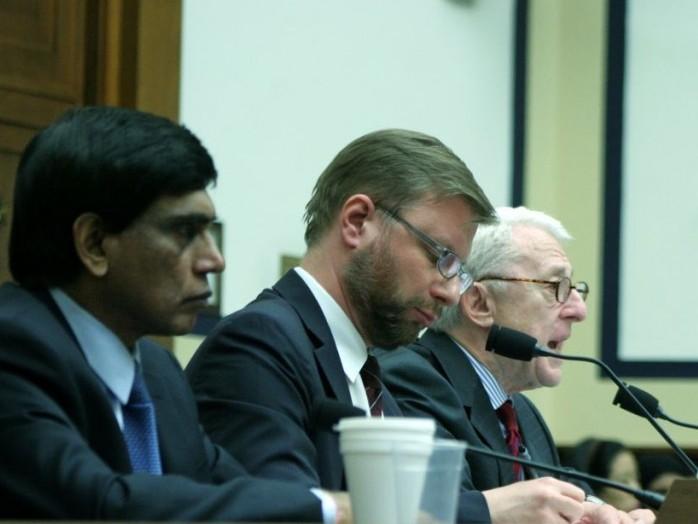WASHINGTON—The Congressional Executive Commission on China (CECC) held an emergency hearing to draw attention to the over 30 North Korean refugees who had fled to China and are facing the imminent danger of repatriation. If returned, they face certain persecution, torture, and even execution.
“The international community—especially the United Nations, the Obama Administration, and the U.S. Congress—must insist that China at long last honor its treaty obligations, end its egregious practice of [forced return to North Korea], or be exposed as hypocrites,” said Rep. Chris Smith, Chairman of the CECC, March 5 in his opening remarks.
A finding from the CECC Oct. 2011 annual report said “Chinese law enforcement agencies have deployed hundreds of officials to locate and forcibly repatriate North Korean refugees.” The Chinese work with North Korean police to engage in reported “manhunts,” throughout China, including remote areas. In addition, Chinese authorities offer bounties to citizens who turn in North Koreans, and “fine, detain, or imprison” those who render humanitarian assistance.
The situation is made more critical at this time for North Korean defectors apprehended recently in China. North Korea’s new leader, Kim Jong Un announced in December the “exterminate three generations” policy, where the family and relatives should be executed if just one member of the family fled North Korea during the 100-day mourning period following the death of his father, Kim Jong Il.
“Under such atmosphere, it is as clear as daylight that the refugees will be subject to an exemplary execution or imprisonment in the concentration camp for political prisoners, immediately after being taken to North Korea,” said Suzanne Scholte, Chairman and Founding Member of the North Korea Freedom Coalition.
Graphic Testimony
The commission heard oral testimony from a North Korean mother and daughter who have undergone years of fear, starvation, beatings, pain, and suffering. Ms. Songhwa Han described the arrest of her husband who made a trip to China in order to bring back a sack of rice for his family, which was weak from starvation. He died while in prison from starvation and the severe punishment he received, she said. With hungry stomachs, Han didn’t want to see her family starve and so she took her two daughters and crossed “waist-high currents of the Tumen River.”
They eventually successfully escaped from North Korea, but had to live in constant fear in China for almost 10 years, during which times, they were forcibly repatriated four times. She described a North Korean work camp where she worked from 5 in the morning until late at night, and given only a “fist-size corn-riceball to eat. She said they were required to attend self-criticism group meetings till 11 p.m.
“For the crime of betraying the nation, in the [National Security Agency] prisons, the North Korean refugee men who were forcibly repatriated were beaten with steel pipes, and countless people died from the beatings inflicted on them where arms and legs were broken. I myself was beaten in the head for the crime of having gone over to China, and I was beaten so severely that my skull still has pieces of bone embedded in my head.”
Han’s daughter, Jinhye Jo, described the Chinese police and security officials they encountered as “obsessed with searching and arresting North Korean defectors.” She said the human traffickers “did not see a mother with two children but rather a source of money-making.”
Jo said she witnessed with her own eyes in a North Korean prison the abuse of a North Korean woman who was pregnant with a baby conceived with a Chinese man. The head national security agent “cussed profanities at her, yelling at this woman that she was a ‘bitch who carried Chinese seed.’ He then proceed to torture and beat her with steel hooks by hitting her on the side and the head, and forcing her to sit and stand repeated for 500 times, until she collapsed.”
Scholte said Kim Jong Il’s “racist contempt for the Chinese people was evident in his ordering of his border guards to beat the bellies of pregnant North Korean females who had been repatriated because their unborn babies were half Chinese.”






